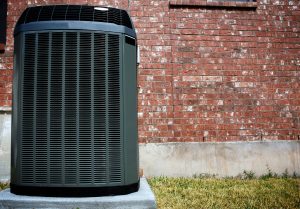 We hate to break the news, but it’s only going to get colder this year! We know, air conditioners are still going to be useful for the last few hot days this year in Shreveport, but that heat won’t last forever! So, if you’re getting tired of using your air conditioning in Shreveport, LA and you’d rather get your heater ready for the cold days that will inevitably be here, then this blog post is for you!
We hate to break the news, but it’s only going to get colder this year! We know, air conditioners are still going to be useful for the last few hot days this year in Shreveport, but that heat won’t last forever! So, if you’re getting tired of using your air conditioning in Shreveport, LA and you’d rather get your heater ready for the cold days that will inevitably be here, then this blog post is for you!
You’re probably thinking to yourself, What, you don’t just leave your AC system outside for the winter?”
The answer to that question is a resounding no! There are plenty of things that a responsible homeowner can do to make sure an air conditioner is safely stored until next summer. From a quick inspection to cleaning around the unit, we’ve got a whole checklist that can keep you from panicking when the summer approaches next year.

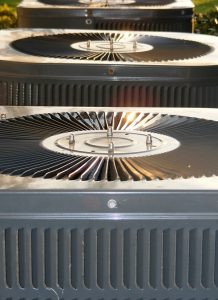 Grinding, buzzing, screeching, no these noises are not normal and you should stop thinking they are! There’s nothing more frustrating, from our point of view, than a homeowner who has gone years listening to their air conditioner grinding loudly while they believed it was ordinary. We’re writing this blog post with the hope that you’re one of the more vigilant of homeowners since we just hate seeing a perfectly good AC unit slowly breakdown due to neglect and ignorance.
Grinding, buzzing, screeching, no these noises are not normal and you should stop thinking they are! There’s nothing more frustrating, from our point of view, than a homeowner who has gone years listening to their air conditioner grinding loudly while they believed it was ordinary. We’re writing this blog post with the hope that you’re one of the more vigilant of homeowners since we just hate seeing a perfectly good AC unit slowly breakdown due to neglect and ignorance.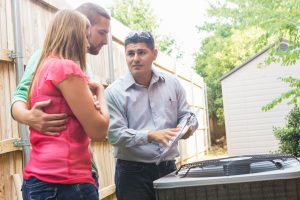 It can be easy to freeze up when a service professional finally comes to your home to install an air conditioner. We all know that feeling when all the questions you had previously thought up are gone and you just say that it “looks good.” Then the frustration kicks in when there’s a problem later on and you remember that it has to do exactly with the question you forgot to ask!
It can be easy to freeze up when a service professional finally comes to your home to install an air conditioner. We all know that feeling when all the questions you had previously thought up are gone and you just say that it “looks good.” Then the frustration kicks in when there’s a problem later on and you remember that it has to do exactly with the question you forgot to ask!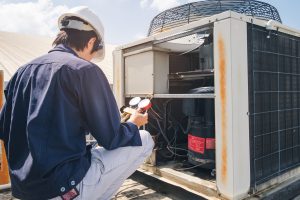 If you’re on the prowl for a new HVAC technician to inspect your AC, it might be beneficial to know exactly what the technician does! Specialists who work on air conditioners usually use a narrowed-down checklist that can help them identify if there are any problems with the function of your AC. While we might not be able to give you that exact checklist, we can tell you about a few items that are usually on those lists, which end up being some of the more common problems for AC systems.
If you’re on the prowl for a new HVAC technician to inspect your AC, it might be beneficial to know exactly what the technician does! Specialists who work on air conditioners usually use a narrowed-down checklist that can help them identify if there are any problems with the function of your AC. While we might not be able to give you that exact checklist, we can tell you about a few items that are usually on those lists, which end up being some of the more common problems for AC systems. Commercial refrigeration maintenance is vital because it’s not just you who faces the consequences of a broken-down refrigerator, but your business and your customers. We’re not just talking about luxury beverage or wine coolers, but also any
Commercial refrigeration maintenance is vital because it’s not just you who faces the consequences of a broken-down refrigerator, but your business and your customers. We’re not just talking about luxury beverage or wine coolers, but also any  Air conditioning systems don’t have a long history in homes. Not as long as electricity and indoor plumbing, for example. Central air conditioning installations only became common in the 1970s. Since ACs started spreading, homeowners have wondered if these cooling devices might cause indoor health complications.
Air conditioning systems don’t have a long history in homes. Not as long as electricity and indoor plumbing, for example. Central air conditioning installations only became common in the 1970s. Since ACs started spreading, homeowners have wondered if these cooling devices might cause indoor health complications. We don’t really have a nice, dry heat here in Lousiana. Our summer season isn’t just hot. It’s sticky and it’s muggy. That level of humidity can cause some problems on top of discomfort. Remember, your air conditioner has a dehumidifying effect in your home. As refrigerant evaporates to cool the air in your house, it draws moisture out of the air. That moisture collects on the coil before dripping off into the condensate drain.
We don’t really have a nice, dry heat here in Lousiana. Our summer season isn’t just hot. It’s sticky and it’s muggy. That level of humidity can cause some problems on top of discomfort. Remember, your air conditioner has a dehumidifying effect in your home. As refrigerant evaporates to cool the air in your house, it draws moisture out of the air. That moisture collects on the coil before dripping off into the condensate drain. When the cold weather winds down as spring advances, you’ll want to put the winter far behind you and consider your summer plans. The air conditioner in your house will soon switch to regular operation, so this is the ideal time to schedule its annual maintenance appointment.
When the cold weather winds down as spring advances, you’ll want to put the winter far behind you and consider your summer plans. The air conditioner in your house will soon switch to regular operation, so this is the ideal time to schedule its annual maintenance appointment.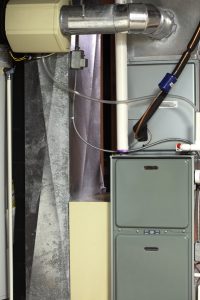 As the winter winds down and the official start of spring arrives (i.e. this week), you’ll probably not give much thought to your furnace. The weather is going to warm up gradually on the climb toward the summer heat.
As the winter winds down and the official start of spring arrives (i.e. this week), you’ll probably not give much thought to your furnace. The weather is going to warm up gradually on the climb toward the summer heat.
